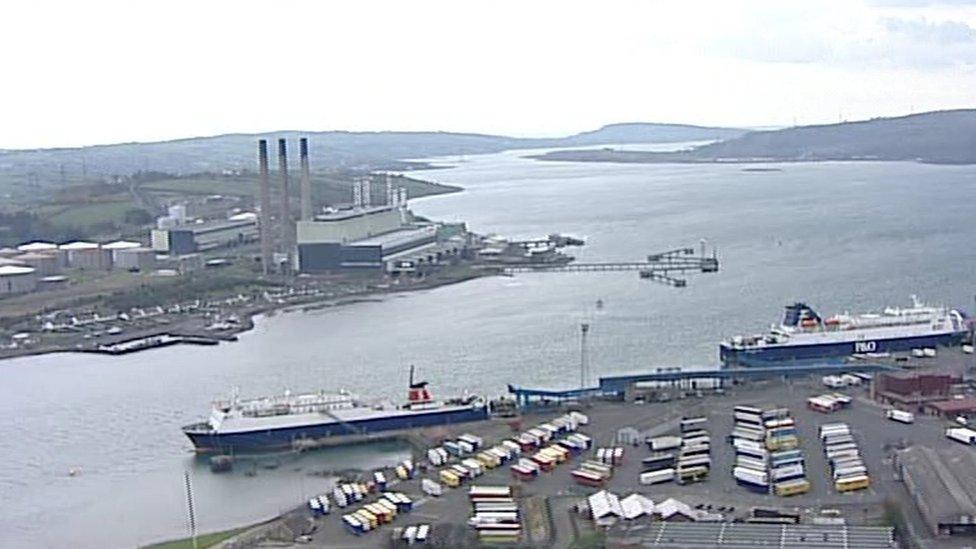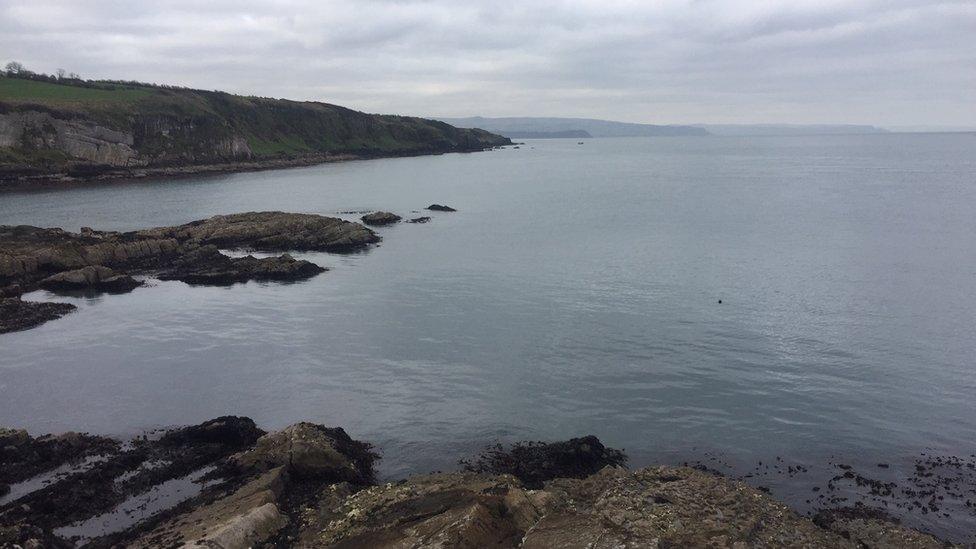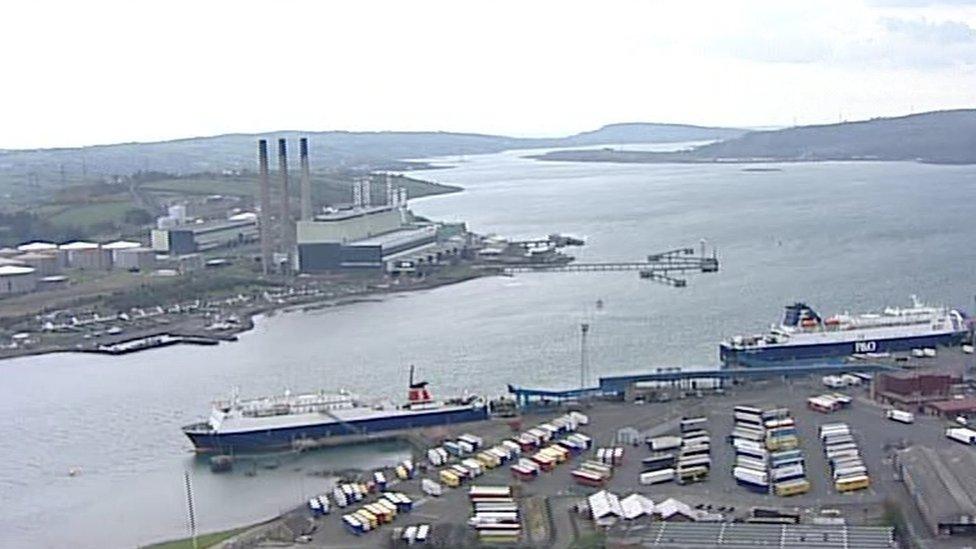Larne Lough gas storage challenge goes to judicial review
- Published

The project would see seven large gas storage caverns hollowed out under the lough
A legal challenge to plans for gas storage caverns under Larne Lough will proceed to judicial review.
The Department of Agriculture and Environment (DAERA) granted the project a marine construction licence in October 2021.
The campaign groups No Gas Caverns and Friends of the Earth requested leave to apply for a judicial review.
The hearing is expected to take place later this year.
The department accepted there was a case to answer.
The project would create seven gas storage caverns off the coast at Islandmagee, County Antrim, by carving out salt layers.
About half a billion cubic metres of natural gas would be stored, creating a 14-day buffer during periods of peak demand.
Long term, it is proposed to store hydrogen, as a product of surplus wind power generation.
Islandmagee Energy said the project would provide security of supply during peak demand for up to 14 days.
Harland and Wolff, Islandmagee Energy's parent company, has said that with the current energy supply issues, "everyone now understands just how important gas storage is to secure supply and protect against extreme volatility in gas and power prices in the UK".
It also said it would create 400 direct jobs.
Chief Executive John Wood also said in 2020 that it had completed a "robust series of surveys and studies", which had been sent to Stormont departments.
It has also said that the caverns are "a well-proven technique that represents the most environmentally friendly, safe and efficient method of storing large volumes of gas".
But campaigners say the discharge of extremely salty water, as a result of excavating the caverns, would threaten the local environment, undermine action on climate change and have a "significant detrimental impact" on sea life.

The proposal would see brine solution being discharged into the North Channel near Islandmagee
Because the grounds on which the application is based were accepted without a leave hearing, the case will now proceed to the substantive stage.
The No Gas Caverns group and the director of Friends of the Earth NI welcomed the latest development.
A spokesperson for DAERA said: "As this is an ongoing legal matter, we are not in a position to comment."
Related topics
- Published6 February 2020

- Published13 October 2021
